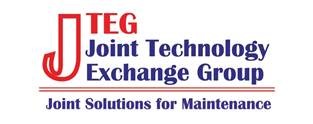Exoskeleton: Industrial Human Augmentation Systems
Forum Documents:
[listyofiles folder=”wp-content/gallery/ergonomics” options=”table,icon,date”]
JTEG Forum Minutes
Event: On 24 February, 2015, the Joint Technology Exchange Group (JTEG), in coordination with the National Center for Manufacturing Sciences (NCMS), hosted a two hour virtual forum on “Exoskeleton: Industrial Human Augmentation Systems”.
Purpose: The purpose of the forum was to share the experiences, challenges, successes, and benefits of DoD efforts in the use of industrial human augmentation systems (iHAS) to perform maintenance. The forum discussed three exoskeleton technologies and a zero-G arm that the military Services are pursuing.
Welcome: Ray Langlais, LMI/OSD(Maintenance) opened the forum with a welcome followed by a brief explanation of the collaborative purpose of the Joint Technology Exchange Group (JTEG) and described the monthly technology forums. Forums are held on the last Tuesday of each month and generally focus on a specific technological capability such as cold spray repair, laser coating removal, and additive manufacturing.
Administrative: The presentations, along with questions and answers, were conducted through Defense Connect Online (DCO) and an audio line. Over 50 participants from across DoD and industry joined in the forum. Questions were sent through DCO and answered by the presenters during the forum. Those presentation slides which are approved for public release, the Q&A, and these meeting minutes will all be available on the JTEG website at https://jteg.ncms.org/ .
iHAS Introduction: Jamie Mattern (NSWCCD) provided a brief history of DoD exoskeleton technology development, the importance of reducing injuries at work, and iHAS’ potential to reduce the risk of injuries and improve productivity. He briefed the Navy iHAS accomplishments to include descriptions of the Lockheed Martin Fortis and BAE OLAD systems. He explained the planned deliverables and finished with leadership comments and some observations from the shipyard workers.
Exoskeleton Background: Greg Kanagaki (Leidos/NSRDEC) provided a background of exoskeletons’ use for load assistance and the NSRDEC approach. He then summarized the discussion tracks and the outcomes of the NSRDEC Human Augmentation Roundtable.
Puget Sound, Norfolk, and Portsmouth Naval Shipyards (Mantis, Fortis, OLAD, Zero-G arm): – Ronald Zmijewski (PSNSY) and Jamie Mattern (NSWCCD) gave a presentation on exoskeleton technology initiatives performed in the naval shipyards. The discussion focused on the experiences and results achieved with numerous applications using the different variants for tool holding assistance. These included the Fortis and OLAD mentioned earlier, and the Lockheed Martin Mantis and Equipois zeroG arm.
Tobyhanna Army Depot (Zero-G arm) – Pat Tierney (TYAD) described implementation of the zer0G arm at Tobyhanna Army Depot. He mentioned several applications, particularly the use of the zeroG arm with laser ablation equipment. TYAD fabricated a tool to allow the arm to interface with the equipment.
FRC-SW (Zero-G arm) – Alcide Richards (FRC-SW) provided a presentation on using a zeroG arm and printed adaptor to aid drilling F-18 canopies. The zeroG arm supports the weight of the 25 lb drill and allows excellent mobility. To secure the drill to the arm, FRC-SW printed an adapter using 3D technology. The final tool improves ergonomics, extends fixture bushing life, and improves productivity.
Observations & Review: – The JTEG Principals provided positive feedback to the presentations emphasizing the importance of sharing these types of technologies across the depots and military services.
Questions & Answers: Q&A from the teleconference will be posted on the JTEG Website.
Closing Comments: Greg Kilchenstein thanked the panel and online viewers for their participation and reminded everyone that the presentations, minutes, and Q&A would be available on the JTEG Website.
Next JTEG Meeting: 30 March 2015, 1:00-3:00 pm EST, “Corrosion Prevention and Repair”
POC this action is Ray Langlais, rlanglais@lmi.org , (571) 633-8019

